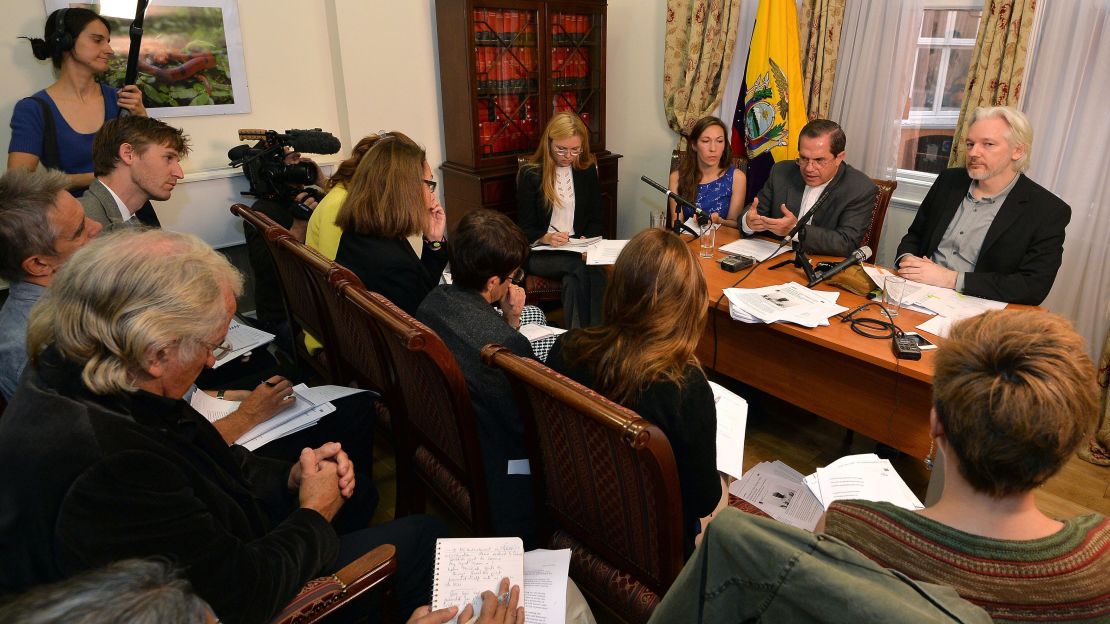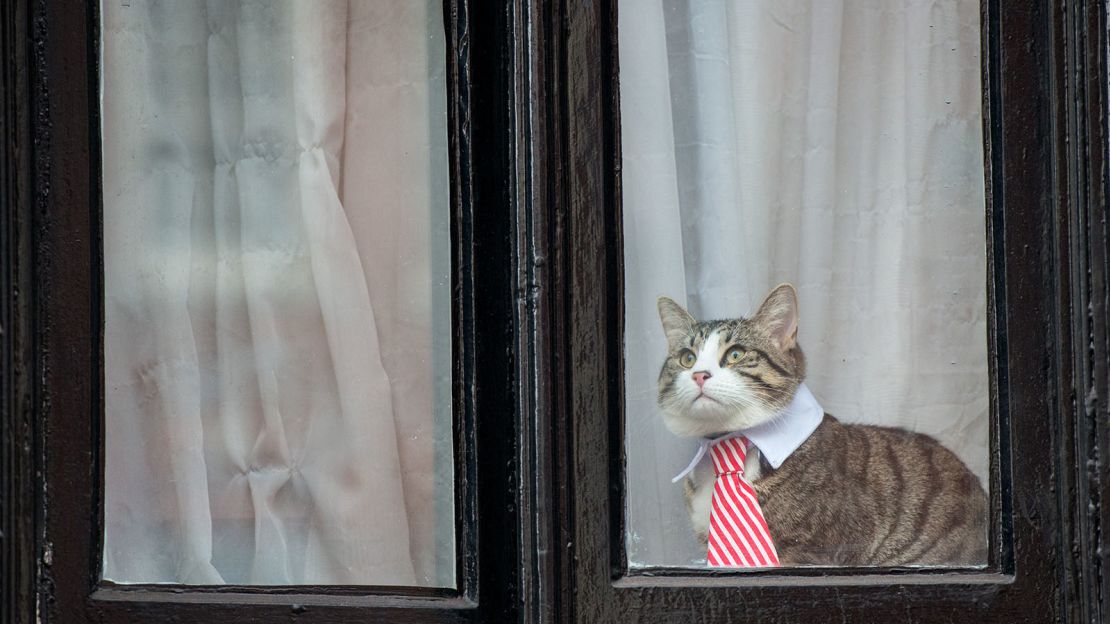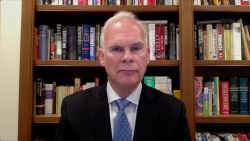Julian Assange’s refuge at the Ecuadorian embassy in London has come to an end. The WikiLeaks founder had been living in the embassy since 2012, after the South American country granted him political asylum.
But on Thursday morning, Lenin Moreno, Ecuador’s President, said that due to his “discourteous and aggressive behavior,” “the hostile and threatening declarations of his allied organization against Ecuador” and “the transgression of international treaties,” Assange’s asylum had been withdrawn.
Assange’s rise to fame
Assange became a household name in April 2010, when his website, WikiLeaks, published a video showing a US military helicopter firing on and killing two journalists working for Reuters and several Iraqi civilians in 2007. The footage, which Wikleaks published on YouTube and called “Collateral Murder,” caused an international outcry.
A US army intelligence analyst, then known as Bradley Manning, was charged with leaking the video, and a cache of diplomatic cables.
Assange’s follow-up came in July 2010, when he partnered with three international media organizations, the Guardian, the New York Times and the German weekly Der Spiegel, on the publication of more that 90,000 US diplomatic communications relating to the country’s involvement in the war in Afghanistan.

These documents brought to light issues around the US’ conduct in Afghanistan, ranging from torture and prisoner abuse to highlighting the number of civilian and friendly fire casualties that were the direct result of the US-led coalition. President Barack Obama also claimed that the leaks had revealed the identities of Afghan informants, placing their lives in danger.
The involvement of respected international media organizations gave Assange journalistic credibility.
But it also put him in the crosshairs of the US government. The then chairman of the joint chiefs of staff, Admiral Mike Mullen, said Assange could have “blood on his hands” for publishing the documents,
Allegations of sexual assault
Shortly after the Afghan files were released, Swedish prosecutors issued an arrest warrant for Assange, based on allegations of sexual assault by two women on a visit by Assange to Stockholm in August 2010.
A few months later, the Stockholm Criminal Court issued an international arrest warrant for him.

Over the next couple of years, interest in Assange grew, as he denied all charges against him, handed himself into police, was bailed, fought against being extradited to Sweden, lost that fight, and finally, on June 19 2012, walked into the Ecuadorian embassy in London to apply for political asylum.
Why political asylum?
Over the period in which Assange was fighting against the Swedish sexual assault allegations, WikiLeaks continued to publish. In October 2010, WikiLeaks released the “Iraq War Logs,” again in collaboration with international media. Similar to the Afghan files, the almost 400,000 files detailed information about US activity in Iraq. These were followed up by the release of classified military documents on the treatment of detainees being held at Guantanamo Bay.

Assange believed that he was fast becoming America’s number one enemy. He came to fear that the Swedish extradition would ultimately result in him being sent to the US, where he feared he could face the death penalty for embarrassing the most powerful nation on earth.
When, in 2012, he lost his fight against extradition to Sweden, he presented himself at the small embassy of the Latin American state of Ecuador, at the end of a lane near the high-end department store Harrods in London.
How Ecuador grew sick of its “inherited problem”
At first, the then left-wing government of Ecuador welcomed him. But during his years in the embassy, a small, poky building unsuited to a permanent house guest, Assange started to grate on embassy staff and patience wore thin.
Throughout his time in self-imposed incarceration, Assange continued his work with WikiLeaks. Early on in his stay, he delivered a speech via satellite to a full conference room at the United Nations, asking the US government to end its actions against him and his website.
In November 2012, Assange’s book, “Cypherpunks: Freedom and the Future of the Internet,” was published. A month later, he guest-starred as himself on an episode of The Simpsons, recording his lines over the phone from the embassy.
In May 2016, he got a feline companion for company. It has a Twitter account, which states: “I live in the Ecuadorian Embassy with Julian Assange” and is “interested in counter-purrveillance.”

But hiding out in Knightsbridge for more than five years has taken its toll on Assange. A judge said last year that he was aware Assange had been experiencing problems with his shoulder, depression and tooth ache.
Assange wasn’t the only one suffering. Over time, staff at the embassy reportedly found Assange’s erratic behavior hard to tolerate.

In 2018, newly-elected President Moreno made a televised statement about Assange. He said the Australian could only remain in the embassy if his security was downgraded and he gave up his access to the internet. The latter was due to Assange’s breach of an agreement with his hosts not to interfere in other states. Moreno, who only took office in 2017, described Assange as an “inherited problem”. The new rules also extended to Assange paying for his food, medical care, laundry and taking care of his tie-wearing cat.
Assange did not respond well to the new conditions. In October 2018, he filed a case against the country, accusing it of violating his human rights.
After seven years as a guest of Ecuador, Assange’s fate now lies in the hands of the UK’s authorities.
CNN’s Lauren Said-Moorhouse , Claudia Rebaza and Milena Veselinovic contributed to this report.





















